
Equal Is Unfair: America's Misguided Fight Against Income Inequality
by
Don Watkins
and
Yaron Brook
Published 28 Mar 2016
All the while, you’ll be told that you’re a greedy, sociopathic exploiter and that the country would be better off without you. No one is so foolish as to think that this is the path to reviving the American spirit and saving the American Dream. That is not the goal of the inequality alarmists. What is their goal? Chopping Down the Tall Poppies The Australians call it “Tall Poppy Syndrome.” When a poppy dares to grow taller than the others, you cut it down to size. It’s a metaphor for an attitude toward success that is certainly not confined to any one country. A healthy attitude toward the sight of other people’s success is goodwill, admiration, and emulation. It can even include a healthy sense of competition: the desire to match your best against the best that others have to offer, not in a war where the loser suffers, but in a mutually respectful campaign where the only question is who will rise the highest.
…
Many a corporate executive or Ivy League academic has quietly, or not-so-quietly, fumed over his colleague’s bigger paycheck or bigger office. Those feelings can have many sources. Sometimes it’s the rational conviction that the recipient isn’t truly deserving, which isn’t even jealousy, but a sense of justice. Other times it’s similar to a thief’s desire for the values others have earned. But Tall Poppy Syndrome is different. It is not a desire for personal success, but the desire to tear down the successful. Not the longing to have what others have, but the longing for them to lose what they have. Not the wish to compete with others, but the wish to see them destroyed. It’s so hard for most of us to comprehend such a desire that many people question whether it really exists.
…
Hector, 10–11 Samphân, Khieu, 207 Sánchez, Yoani, 51–3 Sandefur, Timothy, 127–8 Say, Jean-Baptiste, 91 Scandinavian countries, 27, 107, 111–13 Schadenfreude (taking pleasure in other people’s misfortunes), 214 Schoeck, Helmut, 216 Sherk, James, 128 Short, Philip, 208–9 Sidney, Algernon, 100, 241n26 Silicon Valley, 130–2, 134, 194 Simon, Kosali I., 45–6 Singer, Peter, 201, 205 Smith, Adam, 160 Smith, Hedrick, 32, 181–2 Smith International, 158 social justice, 185–90 Social Security, 31, 35, 41, 69–70, 127, 138, 170, 181–3, 225 Solyndra, 150 Soviet Union, 51–2, 108 Sowell, Thomas, 29–30, 119 stagflation, 32 stagnation, 32, 38–48 standard of living, 39–41, 43, 45, 64, 84–5 and collectivism, 182, 216 and egalitarianism, 201 and finance, 155 and inequality, 175 and innovation, 102 and life expectancy, 24 and productivity, 95 and progress, 24, 26–8 and regulation, 126 and retirement, 181 and unions, 128 and the welfare state, 141 Stiglitz, Joseph, 4, 6, 8, 20, 38, 81, 117 Summers, Lawrence, 166 Sunstein, Cass, 183–4 tall poppy syndrome, 213–18 Tanner, Michael, 142 taxes and taxation and health care, 135–6 and income data, 44–5 in the inequality narrative, 20, 23, 27, 30–3 inheritance taxes, 79, 165–9 and mobility, 120–1 policy, 6–7, 20, 120, 138, 142–4 and poverty, 126–7, 143–4 and Scandinavian countries, 112–13 and stagnation, 44–7 and wealth, 169–73, 212 Temkin, Larry, 194, 206 Tesla, 150 Tesla, Nikola, 89 Thiel, Peter, 60, 130 Thompson, Don, 124 “too big to fail,” 157 Tooley, James, 133 trickle-down economics, 95 Uber, 101–2, 107, 155 Ubl, Stephen, 136 unions.
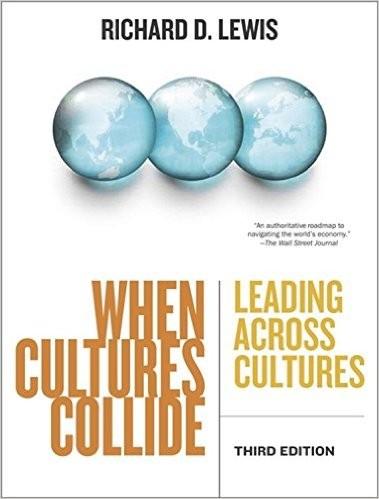
When Cultures Collide: Leading Across Cultures
by
Richard D. Lewis
Published 1 Jan 1996
They suspect that they are being set up to be either humiliated or deceived. Too much praise raises expectation and puts the high achiever under insufferable pressure—and Australians hate being pressured. This tortured form of modesty is greatly respected by most Australians and if it is not observed by the successful, they will rapidly fall victim to the “tall poppy syndrome.” Equally, never take yourself or your national symbols too seriously, or a similar fate will befall you. It is a source of great pride to Australians that the prime minister is frequently booed at public appearances and that quite a few Australians do not know the words of the national anthem.
…
Develop deep friendships whenever this is appropriate. Moderate swearing is not taboo. Sarcasm and irony are popular, but when exercising them, let kindness shine through. Praise Australia—there is no reason why you shouldn’t! They are free spenders, so be careful not to appear stingy. The “tall poppy syndrome” is a reality. Ride too high and the Australians will soon cut you down. Australians like cheerfulness and affability. Respond accordingly. Be prepared to chat amiably with relative strangers. Get a feel for how Australian males treat women. It is a rather special relationship. Give parties regularly if this is appropriate.

I, Partridge: We Need to Talk About Alan
by
Steve Coogan
Published 1 Sep 2011
He had his share of enemies, sure, but that comes with the territory when you’re hoovering up the lion’s share of corporate production and post-production contracts in the North Norfolk region. People were forever trying to topple him off his perch, something I found especially callous when he revealed he was suffering from a serious illness, the little-known ‘tall poppy syndrome’. All healthy competition you might think. Until I tell you that Pete died in a car ‘accident’ on 1 April 2005. Look to your right and you’ll see I’ve put inverted commas around the word accident. There are many of us who suspect foul play. I’m no conspiracy theorist – although I often regale dinner parties blow-by-blow with the arguments advanced by Capricorn One and JFK172 – but I am convinced that Pete was murdered.
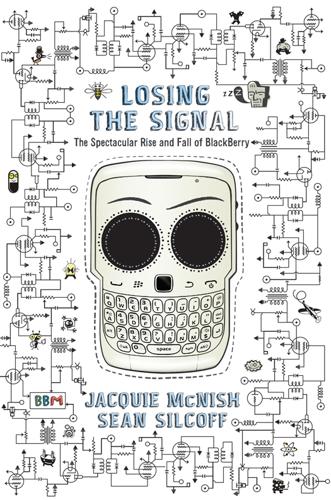
Losing the Signal: The Spectacular Rise and Fall of BlackBerry
by
Jacquie McNish
and
Sean Silcoff
Published 6 Apr 2015
The optics were terrible, leading some investors to fear the worst, since an insider was selling during the company’s sensitive preearnings “quiet period,” a contravention of RIM’s trading policies for officers of the company. O’Donovan resigned from RIM’s board at Balsillie’s insistence.4 To Balsillie, the setbacks were wearying evidence of Canadian hostility to hometown success. Fellow Peterborough resident and celebrated author Robertson Davies called it Canada’s “tall poppy syndrome”: the inclination to cut down those standing above the crowd.5 The solution, RIM’s executives decided, was to go where poppies can never grow too high. For months, Balsillie and Kavelman had discussed cross-listing RIM on New York’s NASDAQ exchange and had even brought in a U.S. tech brokerage, NationsBanc Montgomery Securities, as part of the underwriting syndicate for the IPO a year earlier to warm up American investors.
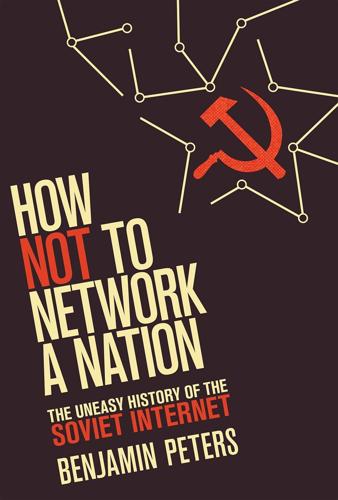
How Not to Network a Nation: The Uneasy History of the Soviet Internet (Information Policy)
by
Benjamin Peters
Published 2 Jun 2016
The vertical bargaining process also penalized the future of productive factories by “planning in” their previous successes as the new baseline, ensuring that the plan would be ratcheted upward in perpetuity.40 Manuel Castells notes that the entrepreneurial managers and workers in the chemical complex of Shchenkino in Tula, Russia, “were trapped into being, in fact, punished with an intensification of their work pace while firms that had kept a steady, customary level of production were left alone in their bureaucratic routine.”41 This ratcheting effect, a kind of institutionalized variant of the tall poppy syndrome, has its corollaries in the mutually reinforcing relationship between demand and supply. In corporate and command regimes, if the supply of one’s quality goods meets demand, one must work harder to meet future elevated demand. If the supply of one’s goods falls short of the need, the capitalist market actor will adjust or go bankrupt, and the socialist administrative actor will be punished.
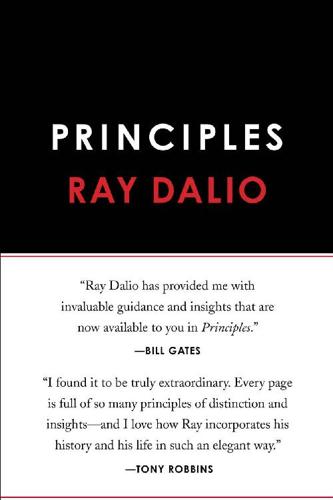
Principles: Life and Work
by
Ray Dalio
Published 18 Sep 2017
That didn’t stop the press from writing about me and Bridgewater, which they typically did in a sensationalistic way—either painting me as a superhero investor who walked on water or as a leader of a cult, and sometimes both. Getting a lot of attention for being successful is a bad position to be in. Australians call it the “tall poppy syndrome,” because the tallest poppies in a field are the ones most likely to have their heads whacked off. I didn’t like the attention and I especially didn’t like the mischaracterizations of Bridgewater as a cult, because I felt it was hurting our ability to recruit great people. At the same time, I realized that because we didn’t let the media see how we truly operated inside Bridgewater, those sensational portrayals were unavoidable.

Pacific: Silicon Chips and Surfboards, Coral Reefs and Atom Bombs, Brutal Dictators, Fading Empires, and the Coming Collision of the World's Superpowers
by
Simon Winchester
Published 27 Oct 2015
The reputation that Australians had then was one born of a gallimaufry of clichés: of meat pies; of grubby pubs; of kangaroo hunters, perpetual sunburn, the outback, larrikins, a brutish kind of football, poisonous spiders in the dunny, Anzac biscuits, Vegemite and lamingtons, Castlemaine XXXX, the tall poppy syndrome, blackfellas, barbies, “G’day, sport,” an enviable competence at cricket, an enviable concept known as mateship, the White Australia Policy . . . Yet if anyone dared be critical of such things, or cringed at their existence, then all and any of the ill will such as these provoked would be quite trumped by one other singular and undeniable fact: the Aussies’ singular courage and determination in war, and the simple sad affection of their countrymen and -women who sent them off to fight.

Equality
by
Darrin M. McMahon
Published 14 Nov 2023
We seek status and we measure it all the time, in others and in ourselves. But if a tendency to hierarchy lurks in our DNA, so, too, on the other hand, does an inclination to resist it. “To be human,” the biologist E. O. Wilson insists, “is also to level others, especially those who appear to receive more than they have earned.” What in Australia is called the “tall-poppy syndrome,” the urge to lop off the head of anyone who dares to rise above the rest, or, in Chile, chaqueteo (jacketing), the teasing sport of grabbing another by the lapels and pulling them down to size, has analogues in almost every culture, from the razzing of the !Kung to the grumblings at the water cooler about the boss.20 In short, human beings are a conflicted bunch.
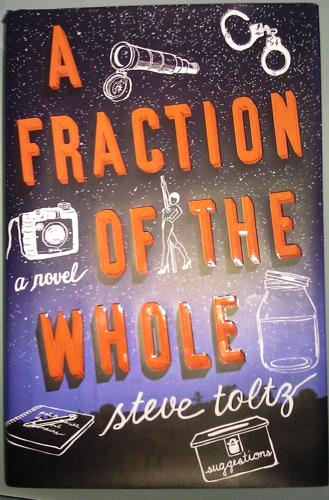
A Fraction of the Whole
by
Steve Toltz
Published 12 Feb 2008
I accept your applause and adoration. You're greedy to escape your prisons, and you think that by making you rich, I set you free. I haven't; I have only let you out of your cell, into the corridor. The prison still exists, your prison that you don't know you love so much. All right. Let's talk about me in relation to the tall-poppy syndrome. It's best to address this tricky issue right off the bat. Look, don't cut my head off, you shits. You love me now, but you'll hate me tomorrow. You know how you are--actually, you don't. That's why I'd like to suggest an unusual exercise for the nation, and the exercise is to love me in perpetuity.